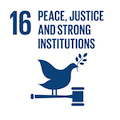Corroding the tax system
Corruption weakens the state’s ability to tax, in part by undermining the tax system through perceptions of unfairness and favoritism, which can drain state coffers. Corruption also distorts government spending by promoting oversize, wasteful projects that generate kickbacks, to the detriment of investments in areas like health and education that have a positive economic and social impact. And since the poor rely more heavily on government services, these distortions disproportionately affect them and limit their economic opportunities.


